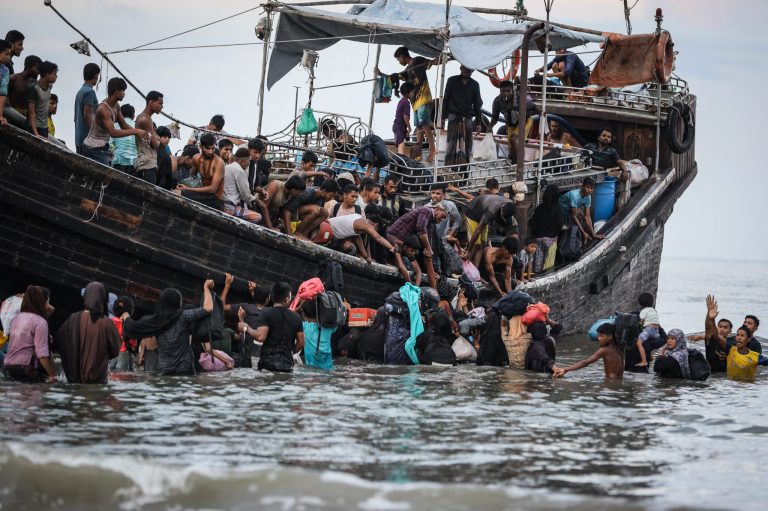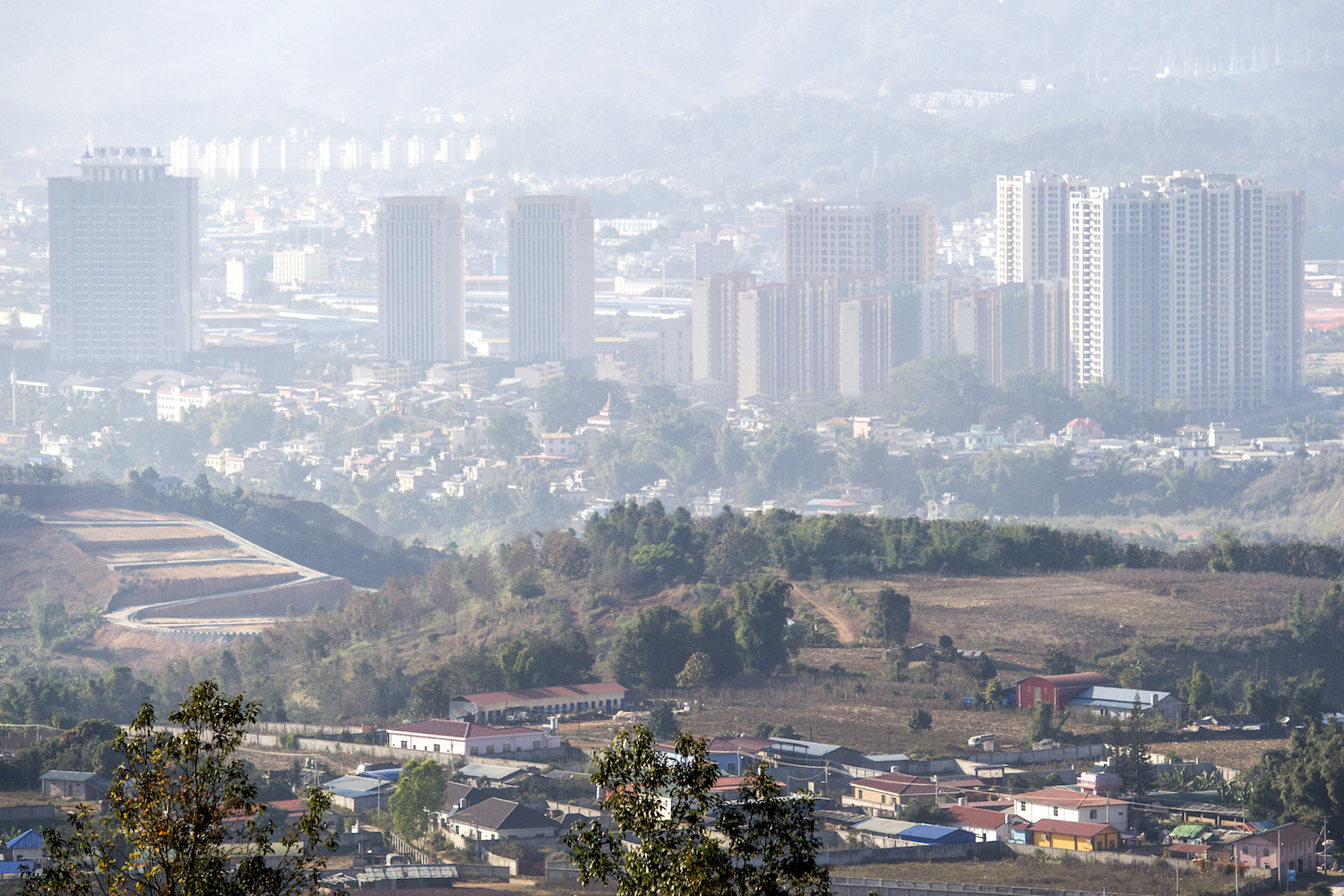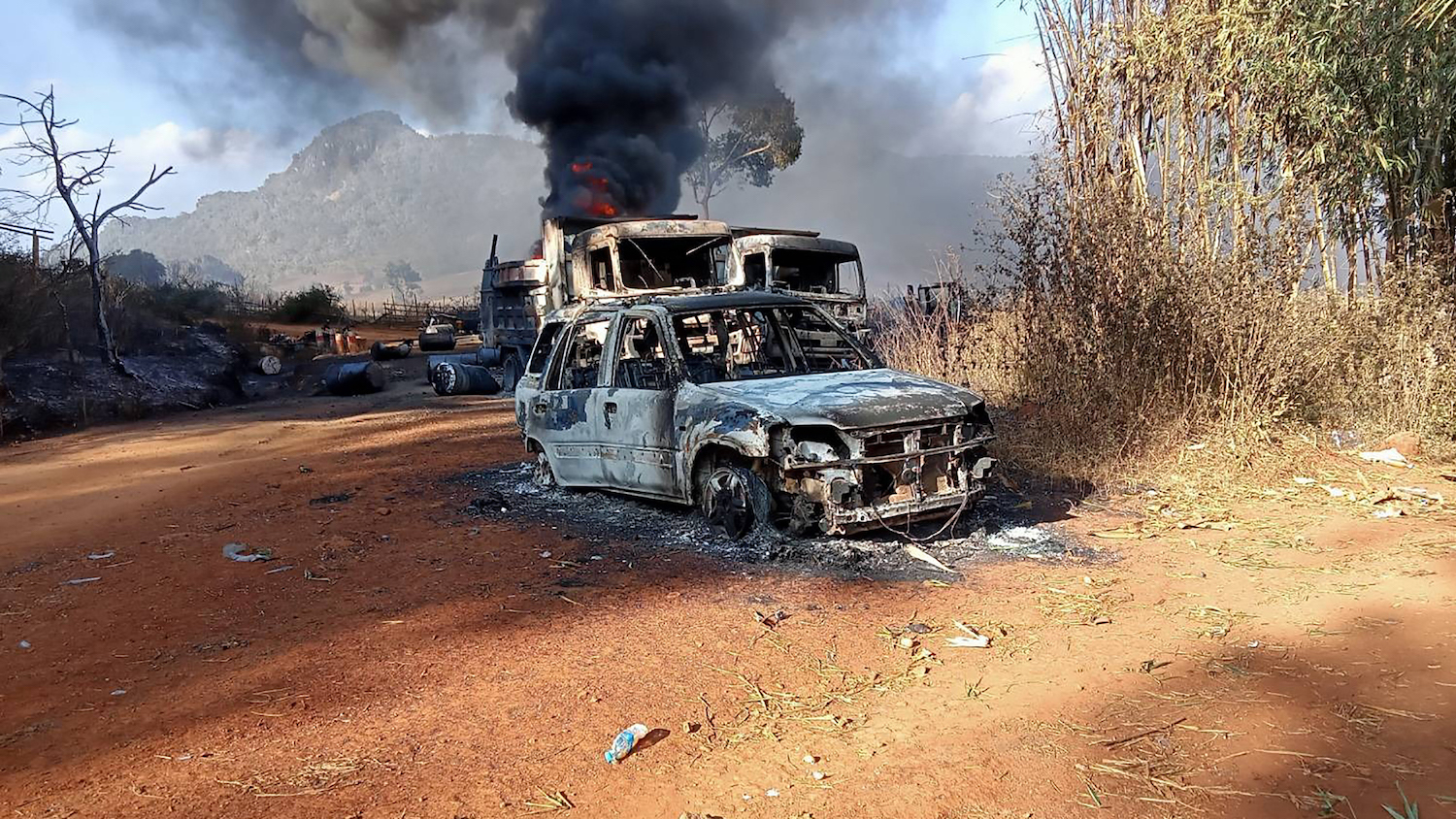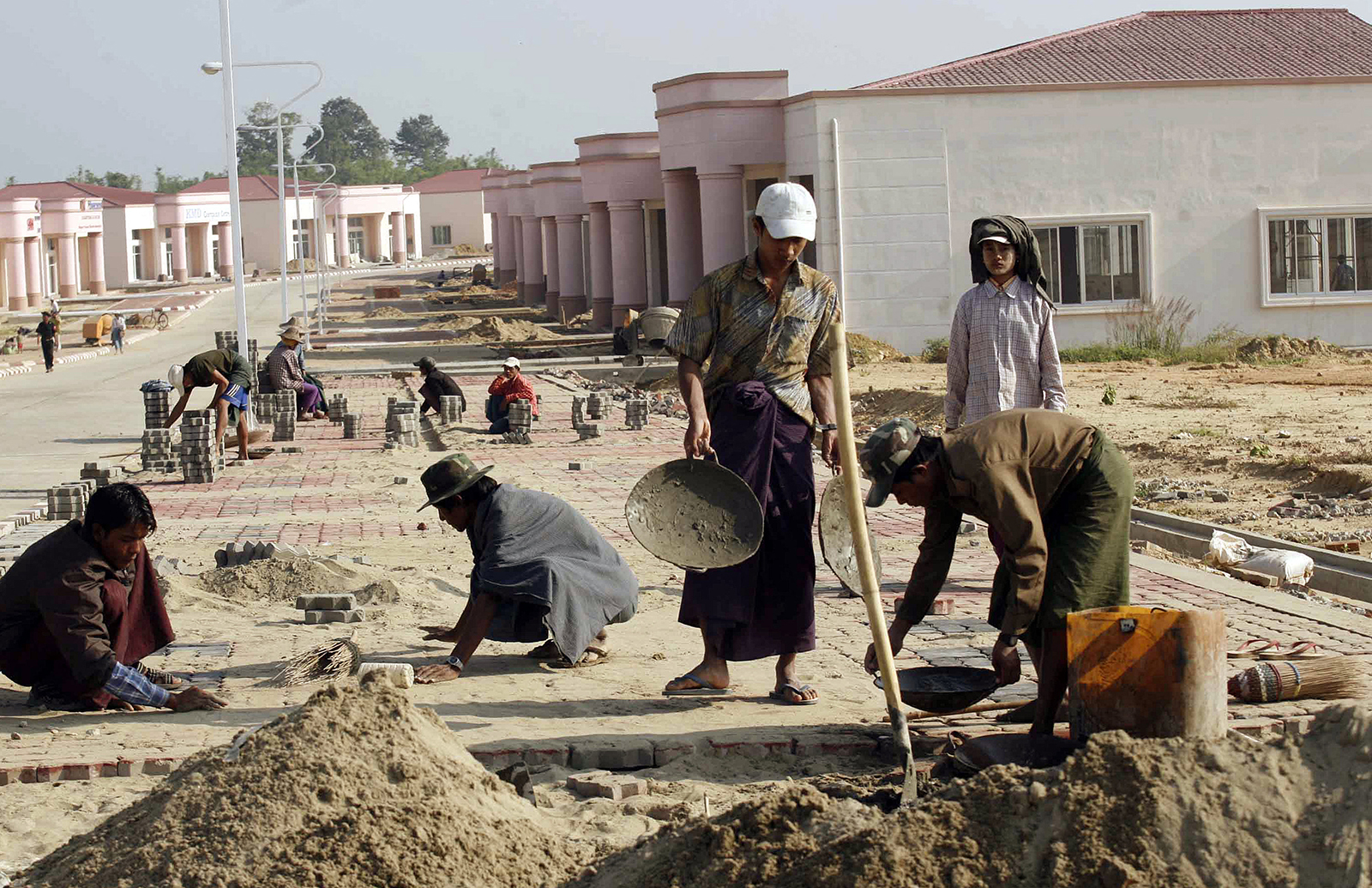The government has so far done little to prevent a mass departure from Yangon in advance of the holiday, which could result in COVID-19 spreading from the country’s largest city to other areas of Myanmar.
By EAINT THET SU and YE MON | FRONTIER
The Yangon Region and Union governments are yet to take steps to minimise or prohibit travel from the commercial capital in the lead up to Thingyan, despite Mandalay introducing a 15-day travel ban to prevent the spread of COVID-19 during the holiday period.
The traditional New Year festival officially runs from April 13 to 17 but is often observed as a much longer holiday. Celebrated as a raucous water festival, with loud music and the dousing of friends and strangers, it is also a time when migrant workers return to their home villages and towns, and when many other residents travel for leisure or visit relatives elsewhere in Myanmar.
Most of the 21 confirmed cases of COVID-19 have been from patients in Yangon, and it is feared that a mass exodus from Myanmar’s largest city could spread the virus across the country, including to areas where health facilities are meagre or non-existent.
Many still seem keen to travel. Popular long-distance bus companies told Frontier that seats on buses departing in the days before the holiday were sold out, and recent departures from Aung Mingalar, Yangon’s largest highway bus station, have been at normal levels.
Support independent journalism in Myanmar. Sign up to be a Frontier member.
However, there are growing number of reports of migrant workers choosing to stay in the city because they would face up to two weeks of quarantine before entering their home community – a measure that is being improvised in an increasing number of villages and towns across the country.
Though international commercial flights have been banned from March 30 to April 13, no visas are being issued until at least April 30 and State Counsellor Daw Aung San Suu Kyi and Minister for Health and Sports Dr Myint Htwe have advised people to “stay at home”, the Union government has yet to announce any internal travel restrictions.
Dr Khin Khin Gyi, director of the Central Contagious Disease Prevention and Eradication Sub-Department at the health ministry, told Frontier on April 2, “Although there is no specific instructions or prohibition on traveling during Thingyan, the ministry and the state counsellor recommended that the public exercise social distancing and that includes trying to stay at home as much as possible. It is the responsibility of citizens to look out for others by avoiding unnecessary travel.”
In the absence of Union-level measures, the initiative has been left to state and regional authorities, but only a handful have seen fit to impose restrictions, with each taking their own approach.
In Yangon, restrictive measures aimed at containing the spread of the coronavirus have been limited to shuttering entertainment venues, closing or reducing hours at major religious sites and ordering restaurants, bars and teashops to only offer takeaway service. Enforcement of this last measure has been patchy, however, with many bars and teashops continuing to serve customers on their premises.
A letter dated April 2 from the regional government ordered township authorities to advise all Yangon residents to only leave their homes to buy food and medicine between April 10 and 19, in a measure that seems largely aimed at preventing people from celebrating the festival on the streets. Large gatherings and stages bearing giant loudspeakers and hoses, which define Thingyan in urban areas, have already been banned in an earlier announcement in mid-March.
However, none of these measures entail any restrictions on those looking to leave the city before the holiday begins.
In contrast, on March 28, the governments of Mandalay Region and Shan State ordered that, till April 30, bus companies could only sell half of the seats on all inbound and outbound buses, in order to safely space out passengers. Bus lines were allowed to sell them at double the usual price, in effect making each passenger pay for two seats. The regional government has not been shy on enforcement, confiscating the permit of the Pan Daw Taw Oo company on April 2 after one of its buses was caught carrying five passengers beyond the limit.
Mandalay Region has since gone further. On April 4, Mandalay city mayor U Ye Lwin used his popular personal Facebook page to announce a ban on all travel in and out of the region from midnight on April 6 to April 21, when an extension would be considered “depending on the situation”.
Meanwhile, in Yangon, Frontier observed a normal level of traffic and commotion at Aung Mingalar during a visit to the highway bus station in northern Yangon’s North Okkalapa Township on March 31. More than 20,000 passengers pass daily through Aung Mingalar, which is the city’s main gateway to the rest of the country. In the days leading up to Thingyan, the number of passengers can double to 40,000 a day, officials say.
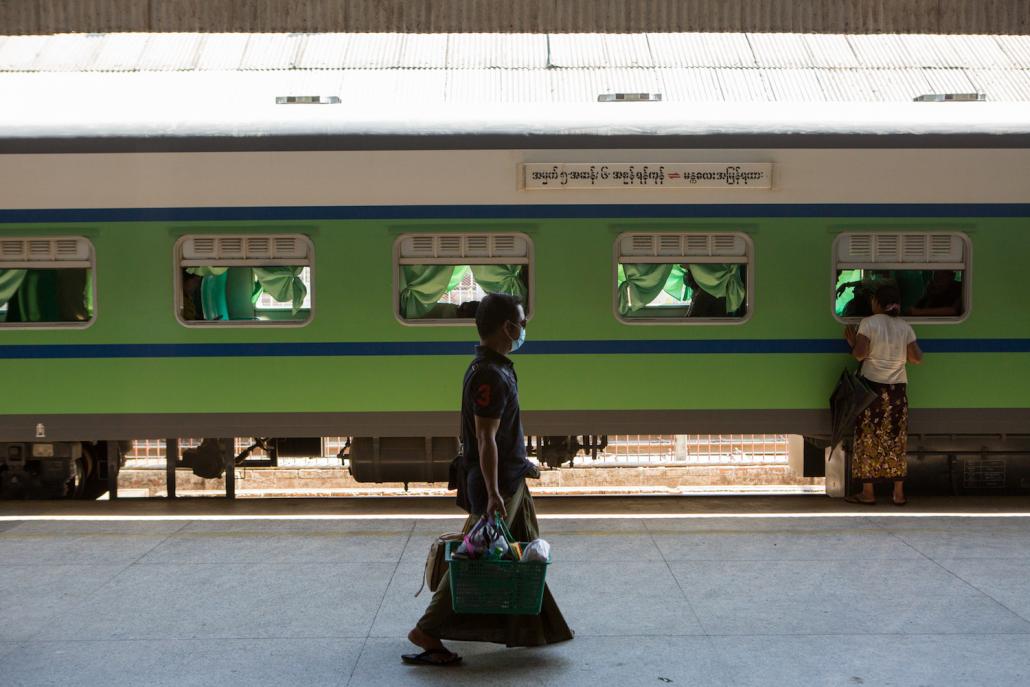
Train services will operate as normal from Yangon in the lead up to Thingyan but officials say ticket sales have been well down on previous years. (Thuya Zaw | Frontier)
U Yan Nyein Chan, who oversees the bus station for the Yangon City Development Committee, said that given the risk from COVID-19, it would be better if people did not travel. Nonetheless, he told Frontier the number of people leaving the city was usual for this time of year and he was not aware of any planned travel restrictions.
Visiting the websites and contacting the vendors for popular bus companies Elite, Famous and JJ Express, Frontier found that most tickets for travel in the week leading up to Thingyan had sold out, as they usually do at this time of year.
Ticket sellers for Elite at Aung Mingalar told Frontier that, like previous years and similar to some other companies, Elite would stop services from April 11, by which time most people who intend to travel for Thingyan will have already left, and resume them on April 20.
However, a sudden increase in people trying to resell their bus tickets over Facebook, alongside recent public communication from some bus companies, indicates that at least some are reconsidering their travel plans.
The Tatmadaw-owned Bandoola Transportation Company posted on its Facebook page on April 1 to say that it would offer full refunds if passengers wanted to cancel their travel plans, or they could change their travel dates free of charge.
Bandoola’s post also advertised services leaving Yangon between April 2 and 5 for those who had been booked to travel between April 9 and 19. The company said it would cancel all buses between Yangon and Mandalay Region, and Yangon and Shan State, between April 6 and 21. While these cancellations could be linked to the new restrictions in these areas, Bandoola said services to other destinations would also be reduced. Managing director Colonel Aung Kyaw Min did not respond to requests from Frontier for further detail.
Aung Mingalar overseer Yan Nyein Chan believed that, even without government restrictions, and despite the high advance ticket sales, far fewer will eventually leave the city for Thingyan compared to previous years. He said this was largely because “some villages and towns are requesting that visitors do a quarantine outside of the villages or towns [normally for 14 days] when they arrive. I heard from the highway bus services that people have cancelled their trips back home even after buying tickets”.
“Even my assistant bought a ticket to go back to his hometown but decided not to go in the end because of the quarantine processes at his village,” he said.
Being largely improvised, and with varying levels of government involvement, it is hard to determine just how widespread these community-level quarantine measures are, and how many returning migrants would be affected by them. However, reports about them are growing, and Frontier did not have to look far to find people in Yangon who have cancelled trips home for this very reason.
Ko Nyein Myint, who lives in Yangon’s outer western Hlaing Tharyar Township and works for an electronic goods company, said he visited his home village of Phoe Kyaw Eain in Ayeyarwady Region’s Ngapudaw Township every Thingyan but had decided against doing it this year. This was because the residents were requiring everyone coming to the village to do a 14-day quarantine, which would make the trip pointless.
“My workplace is closed for only 10 days. I would not have time to go back to my house if I were to do a 14-day quarantine,” he said.
Meanwhile, on the railways – which are slower, less comfortable and less popular than most buses, but still a significant form of transport – no travel restrictions have been imposed either. Schedules are operating as usual, although services between Yangon and Mandalay, Bagan and Pyay will not run from April 12 to 16 due to the holidays.
But considerably fewer people seem to be travelling by rail, said U Zaw Lwin, the Yangon Region railway traffic controller for state-owned Myanma Railways.
He told Frontier there had been “far fewer” ticket sales in the run up to Thingyan. “Usually there are about 7,000 to 8,000 passengers using Yangon Central Railway Station every day at this time of year.” Now, he said, “there is almost no one.”



